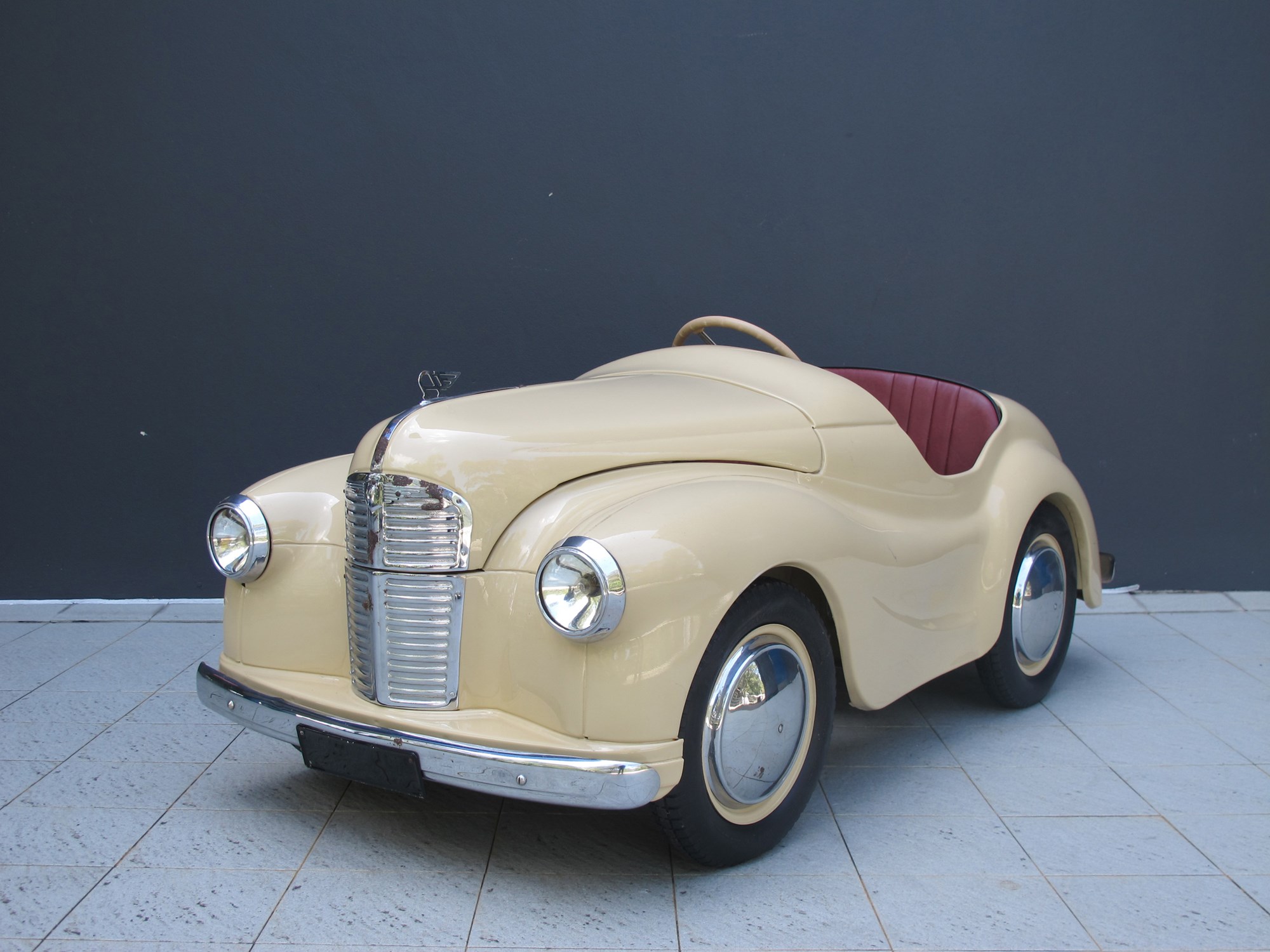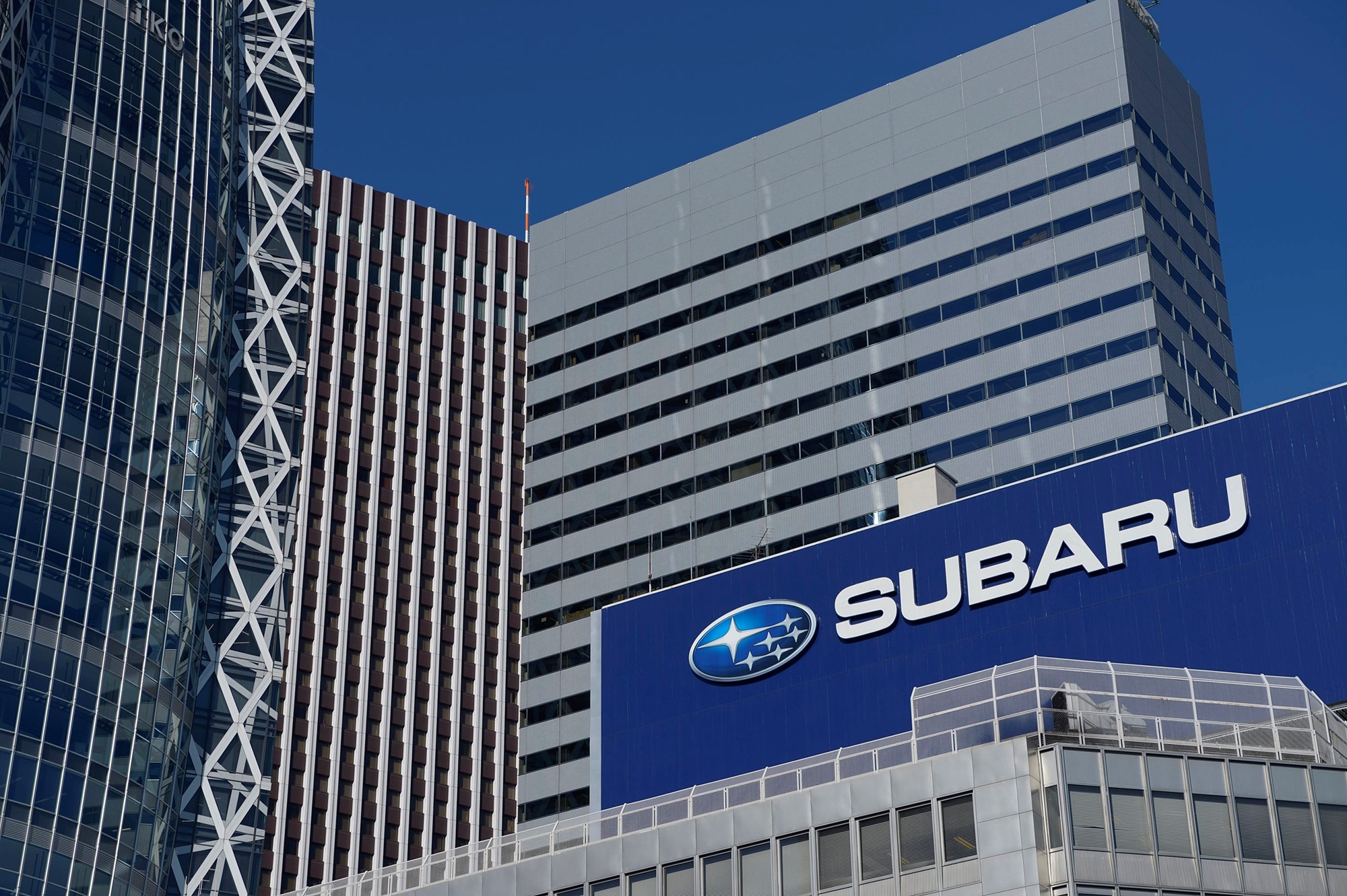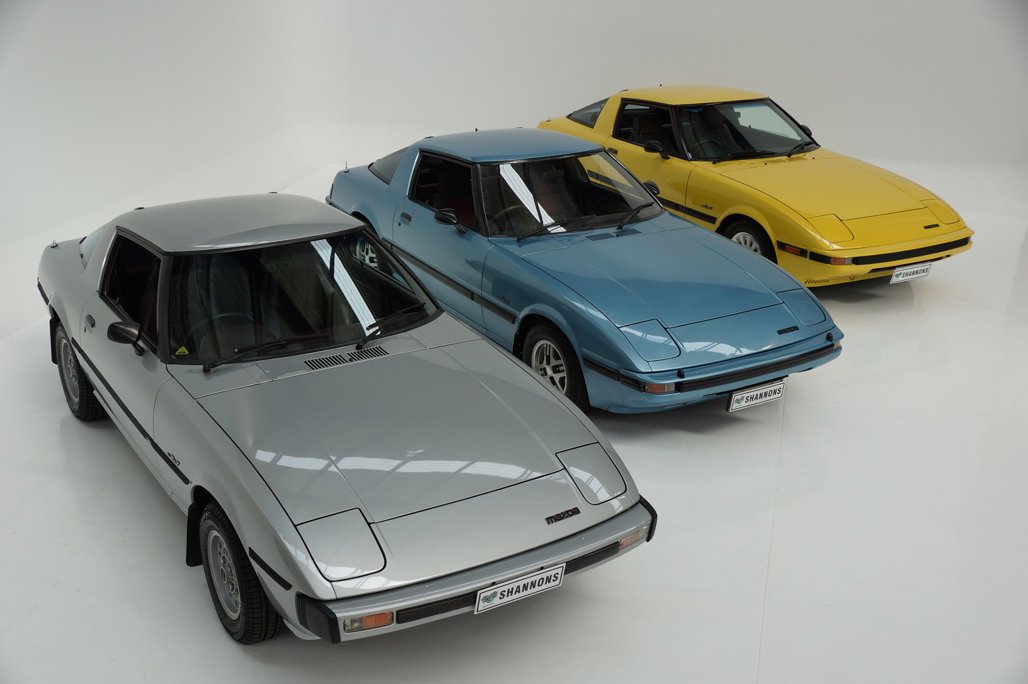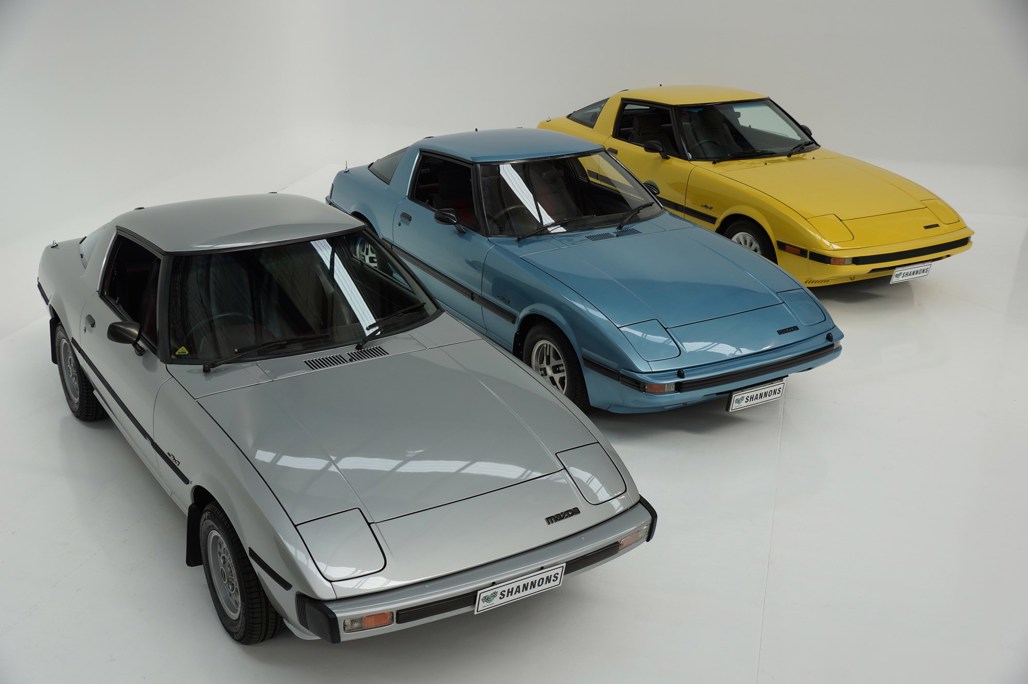If you’re mad-keen on rotary engines in pointy weapons, then an upcoming auction over the ditch should have your attention.
No fewer than three pristine Mazda RX-7s — Series I, II and III models — will be going under the hammer at the Shannons classic car auction in Melbourne at the beginning of May.
Owned by a single vendor, the three cars are refreshingly original examples of the Japanese manufacturer’s iconic sports coupe (original wheels, original interiors, no mods), are all dealer-delivered new in Australia and all feature manual transmissions.
Notable, too, is the fact that, through careful stewardship, the three cars have escaped the attentions of boy racers. That’s a significant rarity for cars of this ilk.
As a result, don’t be expecting the cars to fetch bargain basement prices.
Each of the RX-7s is a low-mileage car in near-pristine condition. The Series I is expected to go for between $20,000 and $26,000, the Series II — a one-owner car — is expected to fetch up to $18,000, while the yellow Series III example doesn’t have a factory sunroof, which (if you’re not an RX-7 expert and thus don’t know about such intricacies) makes it a remarkably rare car from an era when sunroofs were — apparently — all the rage. It is expected to go for between $14,000 and $18,000.
Mind you, for a slice of Japanese performance car history, those prices aren’t astronomical.
Peddling pedal cars

If pedal cars are more your speed... Photo / Supplied
Not long after the Shannons classic car event, the auction action switches to Sydney, where toys of all shapes and sizes, including some fetching restored pedal cars, will be up for grabs in another Shannons auction.
The only rotary motion required here will be the pumping up and down of little legs on pedals.
But there is something appealing about this 1948 Austin J40, which makes up a collection of similarly themed tyke transportation being auctioned off in late May.
There’s also a bit of a serious side to these whimsical wheels. More than 30,000 of the little Austins were built by Austin Motors at a factory in South Wales, which used the hand skills of disabled ex-miners suffering from lung disease.
Each car featured an opening boot and bonnet, a fake engine block up front, a working horn and lights and upholstery fashioned after the life-size version.
Pedal cars are becoming bankable collector items these days, so the Austin’s price guide of $4000 to $6000 might be more of a bargain than it first appears to be.
But there are other pedal cars in lesser conditions on the slate at the Shannons auction, too.
A 1930s Pontiac and a 1950s-era Jeep have three-figure estimates, or there’s an Australian-made Cyclops scooter being offered with “no reserve” that is expected to make around $300 under the hammer.
Subaru, made by Subaru

Meanwhile, Subaru factory changes its name to… well, Subaru. Photo / Supplied
Subaru isn’t Subaru? What on earth do we mean?
Unless you’re a fan of the brand or just a bog-standard know-it-all, you might not have realised that, unlike most automotive manufacturers, the company that puts Subarus together isn’t called Subaru Inc. Well, not up until now, anyway.
It was known as Fuji Heavy Industries, which sounds a) distinctly un-carlike and b) distinctly unglamorous.
FHI is, however, a name steeped in history and, as the moniker might suggest, it has traditionally been involved in many other facets of industrial manufacturing beyond passenger cars.
Its aircraft building beginnings were acknowledged in the (admittedly short-run) triptych grille design of 2006-era Impreza sedans and hatches and the Tribeca SUV.
At the official function recognising the name-change in Tokyo this week, the latest Subaru Impreza and a forthcoming helicopter design were presented as totems of what the wider manufacturer is all about.
Anyway, all that’s by-the-by as of this week. From now on, if you’re asking, Subaru’s range of cars is made by Subaru Corporation.




